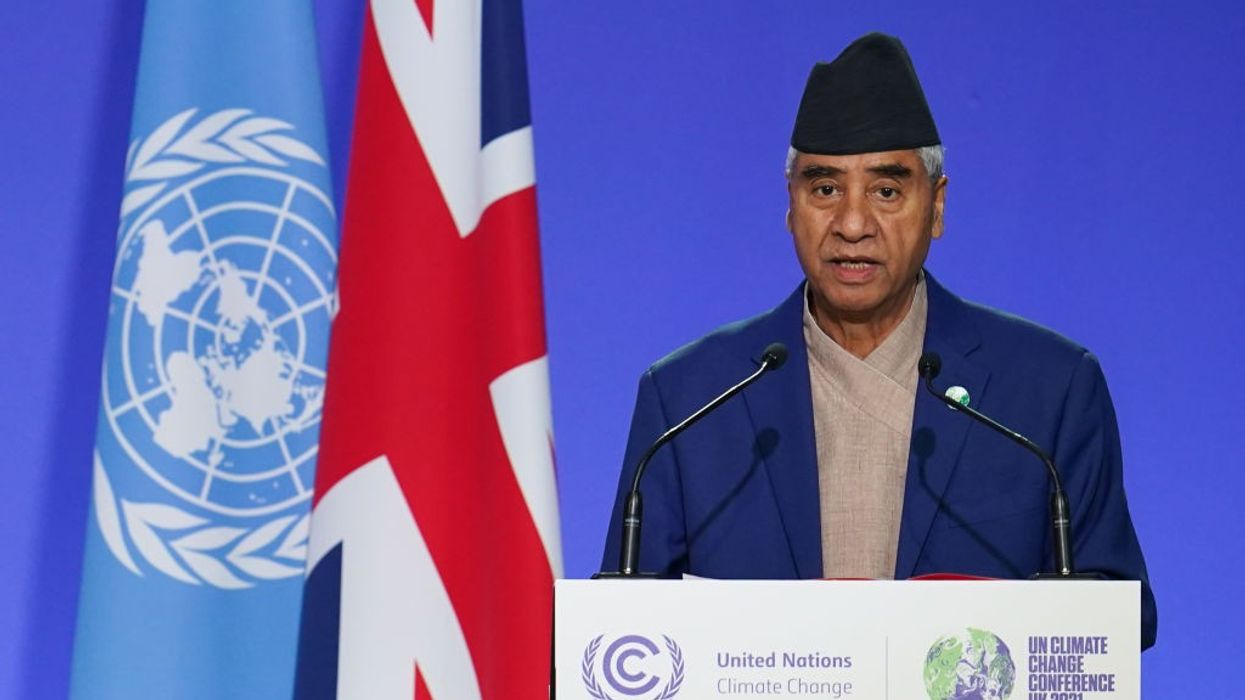The ruling Nepali Congress led by Prime Minister Sher Bahadur Deuba on Sunday maintained its lead as the single largest party by winning 53 seats in the parliamentary polls held to end the prolonged political instability that has plagued the Himalayan nation.
Elections to the House of Representatives (HoR) and seven provincial assemblies were held on November 20. The counting of votes started on Monday.
The Nepali Congress has won 53 seats and the Communist Party of Nepal (Unified Marxist–Leninist) (CPN-UML) secured 42 seats in the elections. The CPN-Maoist has emerged as the third largest party with 17 seats while the CPN-Unified Socialist has bagged 10 seats.
The newly-formed Rastriya Swatantra Party (RSP) and pro-Hindu Rastriya Prajatantra Party have won 7 seats each. Independent and other smaller parties have emerged victorious on 21 seats. Out of the total 165 seats under direct voting, the results on 8 seats are still awaited.
The ruling five-party alliance has won 85 seats, against 55 seats won by the alliance led by CPN-UML. The ruling alliance includes the Nepali Congress led by Prime Minister Deuba, CPN-Maoist led by Pushpakamal Dahal Prachanda, CPN-Unified Socialist headed by Madhav Nepal, Mahantha Thakur’s Lokatantrik Samajwadi Party and Rashtriya Janamorcha led by Chitra Bahadur.
The vote count under the proportional representation to the elections of the House of Representatives and the province assemblies is ongoing. Out of over 17.9 million registered voters, the voter turnout was 61 per cent, according to the Election Commission (EC).
So far, approximately 80 per cent of the votes was counted, The Himalayan Times newspaper quoted EC's Spokesperson Shaligram Sharma Paudel as saying.
Approximately 2.4 million votes remain to count.
Under the proportionate voting method, the CPN-UML got the first position, securing more than 2.5 million votes and the Nepali Congress received 2.3 million votes. The CPN-Maoist and RSP have secured one million each.
In the 275-member House of Representatives, 165 will be elected through direct voting, while the remaining 110 will be elected through a proportional electoral system. A party or a coalition needs 138 seats for a clear majority.
Besides Prime Minister and Nepali Congress president Deuba, three former prime ministers Prachanda, Oli and Madhav Nepal have also been elected to parliament.
Deuba and Prachanda met at the Prime Minister's residence in Baluwatar on Saturday and agreed to continue their ruling five-party alliance as part of a new majority government in the country.
The former prime minister and senior leader of CPN-Unified Socialist Jhalanath Khanal has lost the election. CPN-UML’s Mahesh Basnet defeated Khanal, who contested from Ilam constituency No 1.
Ex-prime ministers Lokendra Bahadur Chand, a senior leader of the pro-Hindu Rastriya Prajatantra Party, and Baburam Bhattarai did not contest the election.
Bhattarai fielded his daughter Manushi Yami Bhattarai. Manushi, who contested from Kathmandu - 7 constituencies, lost the election.
She secured the third position in the Kathmandu - 7 constituency from where Ganesh Parajuli of the RSP was elected.
Political instability has been a recurrent feature of Nepal's Parliament since the end of the decade-long Maoist insurgency, and no prime minister has served a full term after the civil war ended in 2006.
The frequent changes and fighting among parties have been blamed for the country's slow economic growth.
The next government will face challenges of keeping a stable political administration, reviving the tourism industry and balancing ties with neighbours - China and India.
(PTI)




